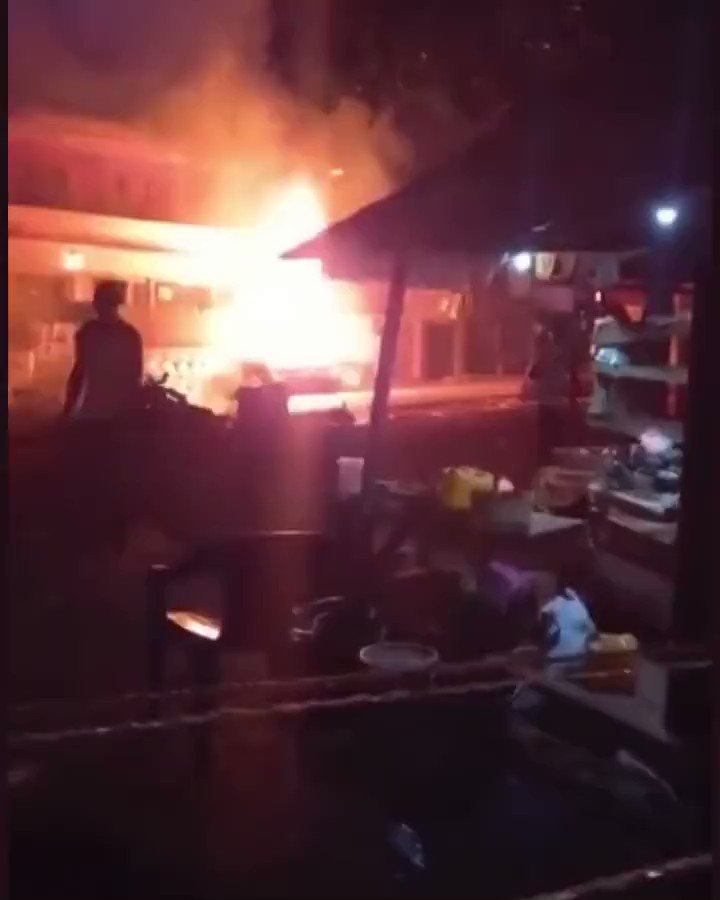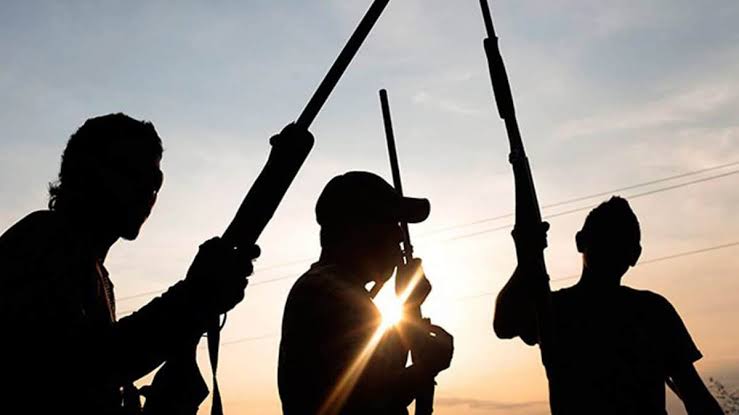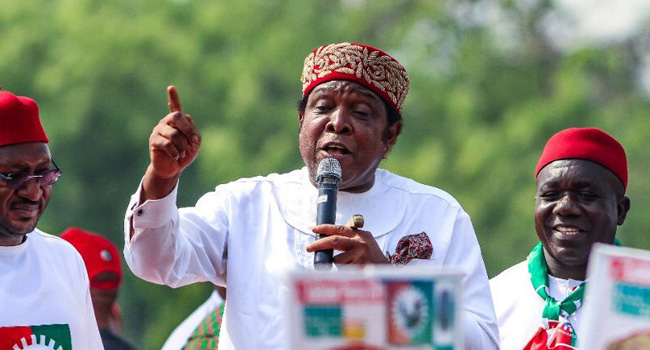According to a local party official, the most recent violent event before a significant national election occurred late Wednesday in southeast Enugu State. The victim was a senatorial candidate from Nigeria's opposition Labour Party.
On Saturday, Nigerians will choose their new president and lawmakers. After holding office for the maximum number of two terms permitted by the constitution, President Muhammadu Buhari is stepping down.
Violence has marred the campaign, following a trend witnessed in earlier elections in the most populous nation in Africa.

Hours after electorate parties and presidential candidates signed a vow to promote a peaceful electoral process, police announced the killing of Labour Party candidate Oyibo Chukwu.
Chukwu had reportedly been slain in an ambush while returning from a campaign event, according to Chinwuba Ngwu, the chairman of the Labour Party in the Enugu South local government area.
He got shot before being set on fire before being set afire in his car with his driver and one of his sons, according to Ngwu.
"For us, it is a tragic development. Ngwu was to win the election, so we suspect a political assassination, " Ngwu explained.
Before the election, U.S. President Joseph Biden urged parties and candidates to accept the results once the Independent National Electoral Commission released them (INEC).
In a statement, Biden added that "all Nigerians deserve this opportunity to determine their future—freely and fairly."
"Although the United States does not favor any particular candidate or party, we firmly support a peaceful and transparent process that honors the wishes of Nigeria's citizens."
The leading candidates for president are Peter Obi, 61, an anti-establishment figure who is well-liked by many young voters; former Lagos governor Bola Tinubu, 70, who runs for the ruling party; and former vice president Atiku Abubakar, 76, who runs for the main opposition party that ruled from 1999 to 2015.
Igbo by ethnicity, Obi is running for Labour Party office. His popularity may have increased the profile of the less well-known party in the Igbo heartland of southeast Nigeria, which includes Enugu State.











